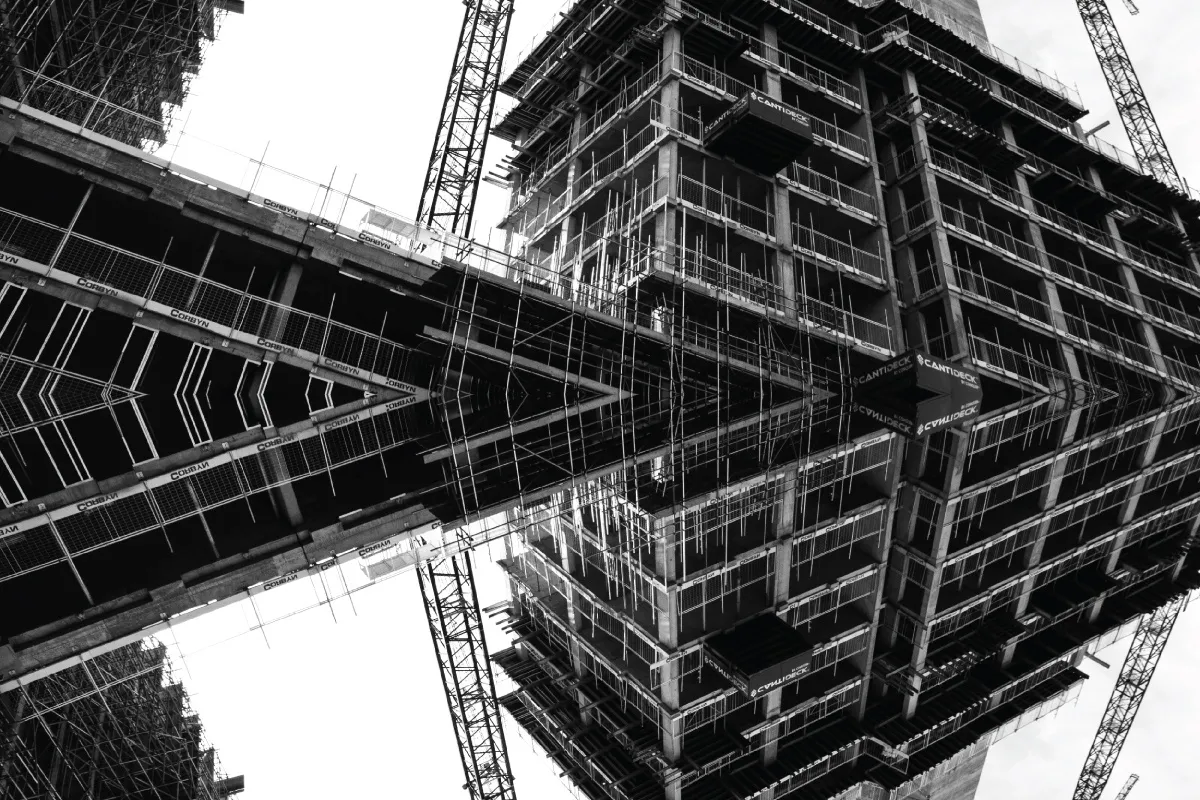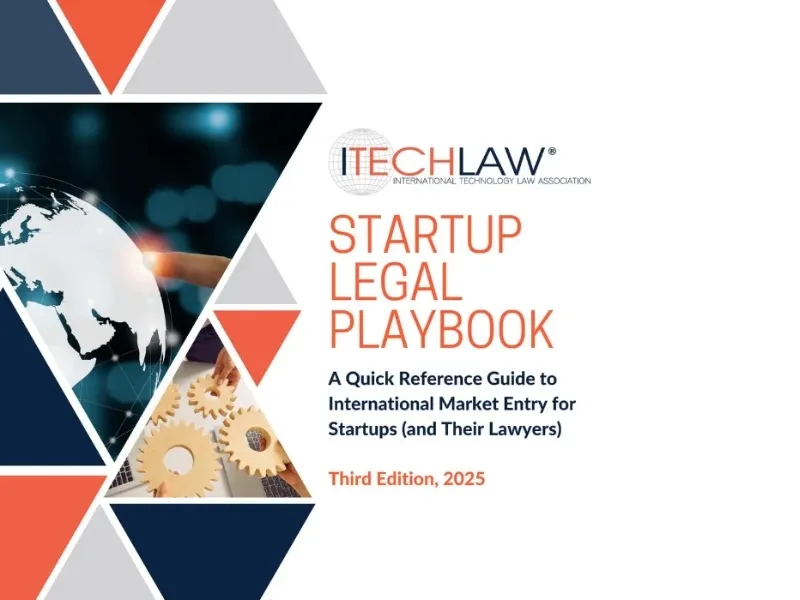Simplifying Urban and Construction Licensing in Portugal: Exploring the Key Changes Introduced by Decree-Law no.10/2024 to Promote More Housing
On January 8th, 2024, it was published Decree-Law no. 10/2024 within the framework of Simplex, with the objective of promoting more housing, introducing a logic of zero licensing. It simplifies licensing within the scope of urban planning, land use planning and industry (DL 10/2024).
DL 10/2024, also known as the Urban Simplex, is the result of a reform on the urban planning and land-use planning law following the approval of Law no. 50/2023 of 28 August (Legislative Authorisation Law) as part of the Mais Habitação (More Housing) Package.
The changes introduced by this Decree-Law 10/2024 come into force on 4 March 2024 (with the exception of some matters that came into force retroactively on 1 January 2024, such as the new rules for changing the use of autonomous units or the delivery of authorisation in property purchases and sales) and apply to procedures initiated before its entry into force and which are pending, with the exception of the tacit approval in urban planning procedures.
Among other relevant points, the following changes were made:

1. Elimination, in some situations, of the need to obtain urban planning licences:
- Allotment operations: The licence will now be waived and made possible by prior communication (it will no longer be possible to opt for the licence regime) when there is i) a detailed plan or an execution unit with certain characteristics; ii) a detailed plan or an execution unit that meets certain conditions that no longer requires the approval of urban works, and prior communication is now applicable, whereas until now only the allotment licence would allow this waiver; and iii) an execution unit with certain characteristics also no longer requires a building licence, with the applicability of the prior communication regime, whereas until now only the detailed plan and the allotment licence would allow this exemption.
- Increasing the number of floors without increasing the height or façade is now exempted from prior administrative control: i) when there is an increase in the number of floors without an increase in the height or façade; ii) when there are interior works that affect the stability structure, ensuring that the qualified technician declares, through a term of responsibility, that the stability structure is considered acceptable in relation to the situation in which the property was before the works were carried out, and this document may have to be shown in any inspection actions; iii) when sufficiently precise prior information has been obtained; and iv) for the replacement of stairwells, by providing an exterior finish identical to the original, promoting energy efficiency.
- Simple non-binding opinion (no need for an urban planning licence or other prior control acts, only a non-binding opinion) for works promoted by companies in the state business sector, municipal and inter-municipal companies relating to:
- i) the installation of equipment or infrastructure intended for the implementation of public services; ii) for the direct and immediate use of the public; iii) in port areas or in the public railway or airport domain; iv) when they are used for housing or for people benefiting from social policies, including residences for students; v) industrial, business or logistics parks, and others, namely responsible business zones (ZER), industrial and logistics zones; vi) for safeguarding cultural heritage; and also vii) for managing the state's housing stock, among others.
Municipalities retain supervisory powers to ensure compliance with the relevant rules, which must be strengthened by the hiring of external supervisory services. It is clear that supervision must be guided by criteria of strict legality and not on the basis of mere convenience, merit or the technical options of the works carried out or in progress
2. Tacit approval for building licences and deletion of the building licence permit
A system of tacit approval for building licences is approved, if decisions have not been adopted within certain deadlines:
(i) 120 days, in the case of construction, reconstruction, alteration or extension, conservation and demolition works carried out on a property with a gross construction area of 300 m2 or less;
(ii) 150 days, in the case of construction, reconstruction, alteration or extension, conservation and demolition works carried out on a property with a gross construction area of more than 300 m2 and equal to or less than 2200 m2, as well as in the case of classified properties or properties in the process of being classified;
(iii) 200 days, in the case of urbanisation works, allotment operations and in the case of construction, reconstruction, alteration or extension, conservation and demolition works carried out on property with a gross construction area of more than 2200 m2;
Once the legal deadline for a decision has elapsed, the owner of the works will be able to carry out the desired project by obtaining a certificate attesting the tacit approval under an electronic procedure created by Decree-Law no. 135/99, of 22 April.
The building licence is eliminated and replaced by a receipt for payment of the fees due.
3. New rules on the counting of deadline and the reorganisation phase of the process
The deadlines counting period start when the owner of the works submits the relevant request and are only suspended if the owner of the works takes more than 10 days to respond to requests for information, additional documents or other requests from the Public Administration.
The City Council can only once request information, additional documents or make other requests during the procedure.
It is stipulated that if there is no imediate rejection or invitation to correct or complete the application or communication, the application or communication is deemed to have been correctly instructed and the application cannot be rejected on the grounds of incomplete instruction.
4. The need for an opinion from the competent cultural heritage authority is eliminated in several situations
Works inside buildings classified as being of national or public interest, or in the process of being classified, are no longer subject to an opinion from the competent cultural heritage authority, as long as there is no impact on the subsoil, or alterations to tiles, stucco, stonework, joinery, carvings or metalwork. Conservation work on the exterior of buildings and the installation of advertising hoardings, signage, terraces and street furniture are also no longer subject to an opinion from the competent cultural heritage authority.
5. The delegation of decision-making powers in the administrative licensing procedure is reinforced
With the same aim of creating the conditions for a more straighforward urban licence procedures, it is possible to delegate competences in these matters to the heads of departments, thus avoiding the concentration of competences in the relevant councilor.
On the one hand, the period of validity of a favorable prior information has been extended from one to two years, without the need to request extensions. On the other hand, the deadline for carrying out the works can be extended without the current limits of only being able to do so once and for a period of no more than half of the initial deadline.
6. Standardisation of rules on administrative procedures
With the aim of standardising urban planning procedures and preventing different practices and procedures in different municipalities, measures are adopted to prevent unjustified and inconsistent analysis for similar situations.
It should be noted that these measures are without prejudice to the possibility of each municipality having its own rules on land use and building conditions. They are simply intended to prevent different rules from being applied in each municipality in matters of a procedural and formal nature, which means excessive and disproportionate costs for private individuals due to the diversity and dispersion of the solutions adopted.
In this sense, it is made clear that municipal regulations can only cover certain types of matters, and cannot, for example, deal with matters relating to administrative procedures or instructional documents, thus endeavouring to make procedures more similar in all the municipalities throughout Portugal.
Municipalities are prevented from requiring additional supporting documents to those foreseen in the law.
Therefore, for the purposes of clarification, a non-exhaustive list of documents that cannot be demanded is adopted, neither by the aforementioned ordinance nor by the regulations or practice of the municipalities. This list includes a ban on requesting, for example, the following supporting documents: copies of documents held by the council, the land registry, declarations of professional capacity of the technicians responsible for the projects, issued by any entity, including professional bodies, among others.
7. Extension of the scheme to modular construction
In view of the new construction techniques that have been used all over the country in the most diverse real estate projects, the legislator has made it clear that the RJUE - Legal Regime for Urbanisation and Building, as well as the RGEU - General Regime for Urban Buildings now applies tout court to modular construction of a permanent nature, which is characterised by the use of modular construction elements or systems, structural or non-structural, partially or totally produced in a factory, previously connected to each other or on site, regardless of their removable or transportable nature.
The licence models, the models for the obligatory use of the licence, the response to the prior communication and the acts to be carried out by the technicians will be approved by government decree.
8. Change of use of autonomous fractions
Changing the purpose or use of autonomous units to residential purposes use no longer requires the authorisation of the other condominium owners.
Condominium owners who change the use of their unit with the town hall may, after the respective town hall certificate has been issued, by unilateral act contained in a public deed or authenticated private document, make the corresponding change to the constitutive title of the property, and must notify the condominium administrator of this change within 10 days.
9. Electronic Platform for Urban Planning Procedures (PEPU)
A PEPU will be implemented to allow: i) submitting requests online; ii) checking the status of the files and deadlines; iii) receiving electronic notifications; iv) obtaining certificates of exemption from urban planning procedures; v) standardising procedures and documents required by municipalities, avoiding the multiplication of different practices and procedures; and, among other features; vi) future submission of requests in Building Information Modelling (BIM) format, with automation of verification of compliance with applicable plans.
This platform will be compulsory for municipalities to be used from 5 January 2026 and it will not be possible to adopt procedural steps or documents that are not foreseen in it.
10. Clarification of the powers of municipalities to exercise prior urban planning control, especially with regard to issuing licences
It is established that the municipality is only responsible for verifying, under penalty of nullity:
i) the building's insertion in the territory (control of compliance with plans, preventive measures, priority urban development and priority construction areas, administrative easements, public utility restrictions and the proposed use; and ii) the exterior aesthetics and the insertion of the project in the landscape; and iii) the sufficiency of the infrastructures, and is not responsible for assessing issues relating to the interior of buildings or matters relating to specialities (water, electricity, gas, etc.).
For clarification purposes, a non-exhaustive list is drawn up of aspects that are not for the municipality to analyse, since they are drawn up on the basis of declarations of compliance with the applicable legal standards by competent technicians.
Limiting the powers of municipalities at the time of prior control or issuing a licence is without prejudice to their supervisory powers, under their competences in terms of protecting urban legality. It is made clear that these powers must be exercised within the framework of legality and that they are intended to verify compliance with the law and not to adopt urban protection measures based on judgements of opportunity, convenience or opinions of a technical nature.
11. Revocation of certain requirements laid down in the General Regulation on Urban Buildings (RGEU) regarding prior urban planning control
The requirement for bidets in bathrooms is eliminated and it is possible to have a shower in bathrooms instead of a bath tub, and kitchen solutions such as kitchenettes or walk-through kitchens are now admissible.
Several rules of the RGEU that are also regulated in more detail in other legislation or that do not comply with this simplification measures are repealed with effect from 1 June 2026.
12. Simplifying the process of obtaining authorisation for use
The authorisation to use is eliminated when there has been work subject to prior control, replacing this authorisation with the mere delivery of documents, without the possibility of rejection, but naturally maintaining all powers of supervision during and after the work.
In turn, when there is a change of use without works being subject to prior control, a prior notice must be submitted with a 20-day deadline for the municipality to respond, and the application for authorisation of use is considered accepted if the municipality does not respond by then.
Municipalities will no longer assess or approve specialised projects, which will merely be sent for information and filing, accompanied by terms of responsibility issued by the competent technicians stating that the projects have been carried out in accordance with the law.
13. Assignment of the position of beneficiary of the guarantee on receipt of urbanisation works
Municipalities are now obliged to accept the contractual position of beneficiaries of the guarantees, after assignment of the contractual position, given by the contractor to the developer for the urbanisation works, thus, eliminating the cost of issuing new guarantees.
14. Elimination of the need to show or prove the existence of the housing technical file and the use authorisation or to demonstrate that they are not required; the building permit and use licence to the receipt for payment of the legally due fees
The formalities relating to the purchase and sale of the property have been simplified, and it is no longer necessary to show or prove the existence of the technical housing file and the authorisation for use or to demonstrate that it is not required.
All legal and regulatory references to the building licence permit and the utilisation licence permit shall be understood to refer to the receipt for payment of the legally due fees.
When carrying out legal transactions involving the transfer of ownership of urban buildings, the registar, assistant or clerk, notary, lawyer or solicitor must inform you that the property may not have the necessary urban planning titles for use or construction.
15. Simplifying the process of reclassifying rural land as urban land
The process of reclassifying rustic land as urban land for industrial, storage or logistics purposes is simplified in order to make up for the lack of spaces that can be used for this purpose, provided that the space is not located in the National Ecological Reserve or the National Agricultural Reserve.
The reclassification of rustic land to urban land, whenever the intended purpose is housing with controlled costs, the ownership of the land is exclusively public and the land is located in contiguity, will now be carried out through the simplified amendment procedure.
According to the terms of this simplified process: i) only one public consultation is carried out, avoiding several public consultations with similar or overlapping objectives; ii) a procedural conference is organised, so that all entities can give their opinion simultaneously; iii) it is determined that the procedure does not stop during the public consultation period, but continues to be developed; and iv) the municipal assembly is given the power to approve it.
At the same time, the conversion of properties for residential use and the construction of new residential buildings in urban areas classified in the territorially applicable plan as spaces for equipment, commerce and services can be carried out through the simplified alteration regime.
16. Removal of monitoring by the Regional Coordination and Development Commission (CCDR) when drawing up detailed plans (PP) and urbanisation plans (PU)
It is expected that the procedures for approving PPs and PUs will be speeded up by: i) eliminating the CCDR's monitoring of the drawing up of these plans; and ii) eliminating the procedural phase of consultation.
17. Prior notification for urbanisation operations in execution units (UE)
Urban development operations in areas where there is an EU will now be carried out through prior communication. If the EU includes i) urban design and ii) programming of urbanisation works, a building or subdivision permit is no longer required and urbanisation operations can be carried out through the prior communication procedure.




